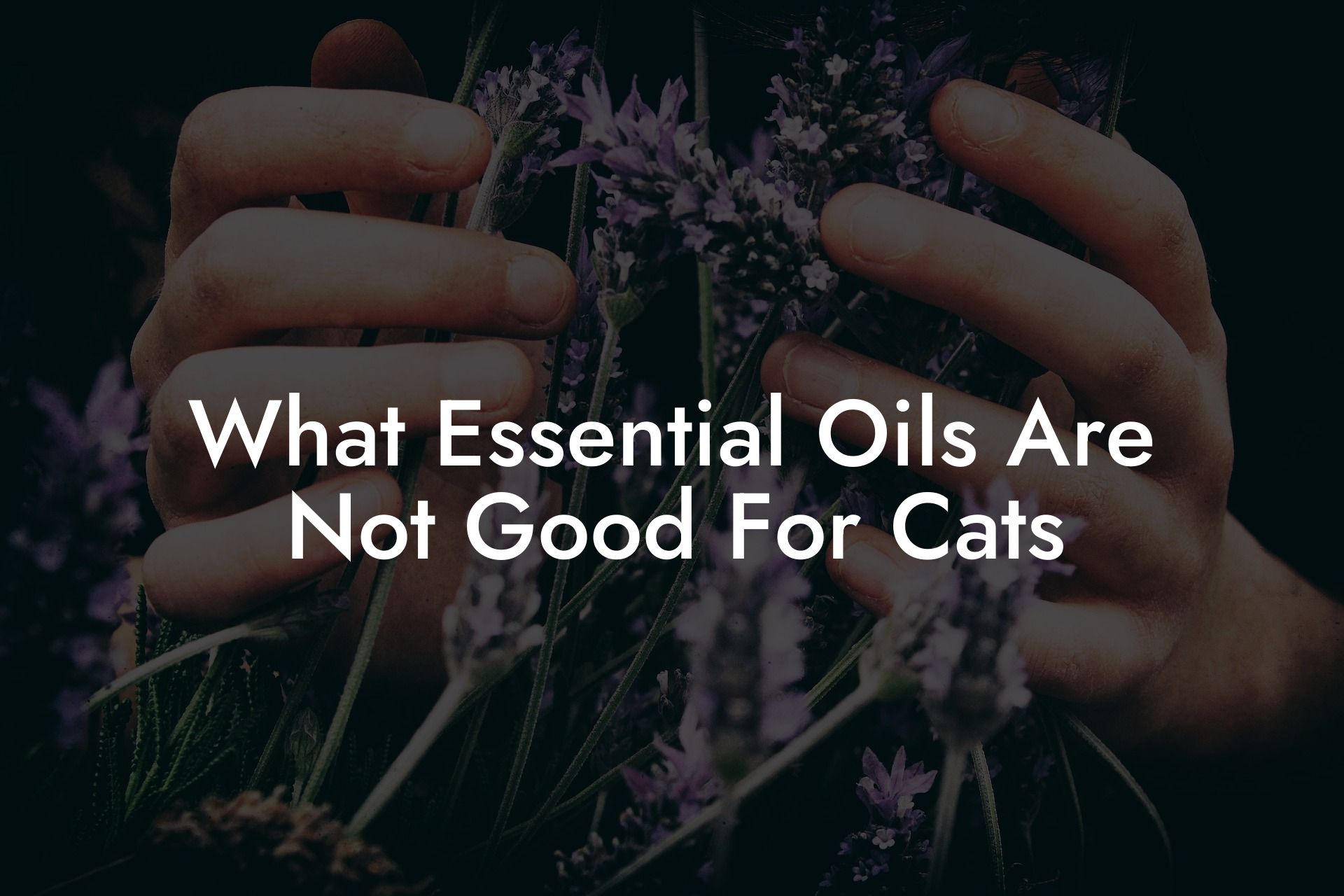Do you love incorporating essential oils into your daily routine? Their calming scents and therapeutic properties are amazing for our well-being. However, if you share your home with a furry feline friend, it’s crucial you know that not all essential oils are safe for cats. Learn which essential oils to avoid and how to safely use them in your home without harming your beloved pet.
Table of Contents
Why are some essential oils harmful to cats?
Cats have a unique physiology, which makes them more sensitive to certain essential oils. Unlike humans and dogs, cats lack a liver enzyme called glucuronyl transferase, which is responsible for metabolizing and eliminating various substances, including essential oils. Consequently, toxic compounds may build up in their bodies, leading to adverse reactions.
List of essential oils unsafe for cats
While not an exhaustive list, the following essential oils may be harmful to your cat and should be used with caution:
- Wintergreen
- Birch
- Citrus oils (e.g., orange, lemon, grapefruit)
- Peppermint
- Eucalyptus
- Tea Tree
- Thyme
- Pennyroyal
- Oregano
- Cinnamon
- Clove
- Ylang Ylang
- Pine
- Lavender
It’s important to note that not all cats react the same to essential oils, and some may be more sensitive than others. Always consult your veterinarian before using essential oils around your cat.
Signs of essential oil toxicity in cats
If your cat has been exposed to toxic essential oils, they may exhibit the following symptoms:
- Drooling
- Vomiting
- Tremors
- Difficulty breathing
- Unsteady gait
- Lethargy
If you suspect your cat has been exposed to a toxic essential oil, contact your veterinarian or an emergency animal clinic immediately. Prompt treatment is essential for the best chance of recovery.
Tips for using essential oils safely around cats
- Use only high-quality, pure essential oils from reputable sources.
- Do not apply undiluted essential oils directly to your cat’s skin, fur, or mouth.
- Avoid using essential oil diffusers in the same room as your cat. Ensure the area is well-ventilated and that your cat has access to a different room where the oils cannot be inhaled or ingested.
- Always store essential oils out of your cat’s reach, as they may be tempted to lick or chew on the bottles.
- Consider using non-toxic alternatives such as hydrosols, which are the water-based byproduct of essential oil distillation and are less concentrated and safer for use around pets.
When in doubt, consult your veterinarian for advice on which essential oils may be safe to use in your household and the best ways to use them around your cat.
What Essential Oils Are Not Good For Cats Example:
Imagine you want to use a lavender essential oil diffuser to calm your nerves after a stressful day at work. However, you remember that your cat, Whiskers, might be sensitive to the scent. You research alternatives and find that chamomile hydrosol can provide similar calming effects without harming Whiskers. You decide to look for cat-safe hydrosols to help keep both of you relaxed and happy in a shared space.
Now that you’re equipped with the knowledge of which essential oils to avoid around your feline friend, you can continue to enjoy the world of essential oils without putting your pet at risk. Remember, always consult your veterinarian for guidance when using essential oils around cats. If you found this guide helpful, please feel free to share it with fellow pet owners, and don’t forget to explore other informative articles on our Oshu Oils blog. Lastly, be sure to take a look at our range of essential oils and aromacology products to enhance your well-being while keeping your loved ones safe.





















